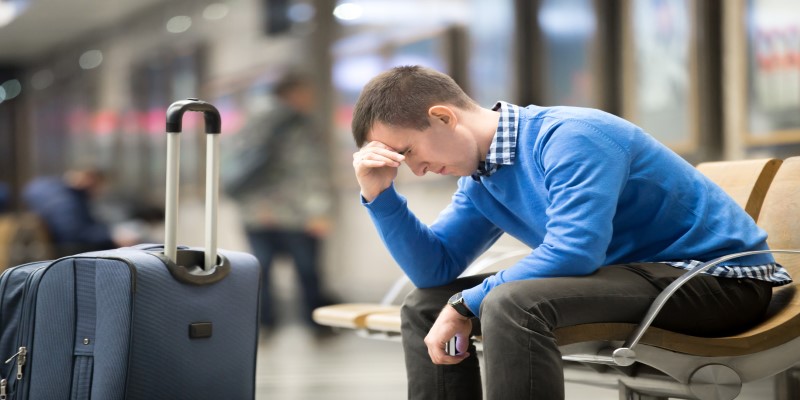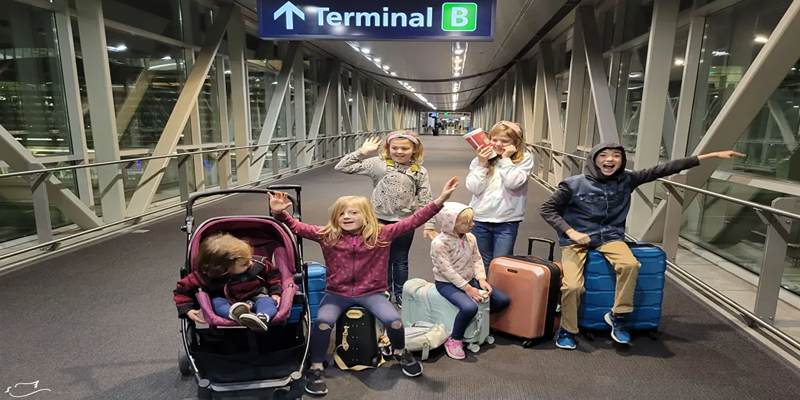Reasons Why Low-Cost Airlines Might Not Be the Best Choice
Low-cost airline companies offer their services at cheaper rates which is why such airlines are preferred by many people. However, what many people ignore, is the fact that, though the charges are low, they get other inconveniences such as hidden charges, unfavorable timing, and uncomfortable seating arrangement. Some of these are; small baggage allowance, charges for selecting a seat, and using out of the way airports. It is important to understand these challenges to enable one to make the right decisions in traveling. This article aims at discussing negative aspects of low-cost airlines, comparing them to full-service airlines, and offering tips to a traveler to enable him or her search for the most appropriate airline that is most appropriate for his or her budget and needs.

Hidden Costs of Low-Cost Airlines
Extra Fees That Add Up Quickly
Another disadvantageous factor of the low-cost airline company is that it incurs hidden charges. However, it has been established that the initial cost of the ticket is cheap, this is because other charges such as charges for carrying baggage, preferred seat, early boarding, and in-flight services can be relatively expensive. That’s why a lot of the budget airlines’ fees include such services as water and snacks, making the overall cost of the trip much higher. Some airlines also have specific rules on what is considered as carry-on baggage hence one is surprised by other charges when at the airport. That is why it is strongly recommended that the traveler should take time and review all charged that may be incurred when making the decision of whether to go for a low cost airline or a full service airline.
Strict Baggage Policies and Overweight Fees
A lot of low-cost airlines have rigid rules concerning the baggage that the passengers can take on board and this often comes with an extra cost if the passenger has packed more. Most LCCs permit one, small bag to be taken into the aircraft cabin while charging for the other standard carry-on and checked luggage. In case the luggage exceeds the allowed limit, the extra luggage charges can be rather high and may even surpass the cost of the flight. In contrast to WO-class airlines, which may guarantee free check-in baggage with the ticket price, NO-class airlines rely on these fees. Those who are planning to travel on low-cost flights should be very careful when choosing the luggage to carry or whether to pay for baggage fees that are charged by the airline service providers to warrant the ticket price.
Seat Selection and Boarding Priorities
Another disadvantage of the low-cost airlines is that the available seats are very few if one is willing to spend more. Some budget airlines do not assign specific seats to passengers and this is only made available if the passengers pay extra for them and this may cause inconvenience to groups of travelers who would like to sit together. Also, the economy class on low-cost airlines means that passengers are squeezed and allowed to recline very little when traveling for long hours. Priority boarding is also an added cost, therefore travelers who do not pay may not be able to find space in the overhead compartment. Based on these conditions, the following airline travel tips including booking early as well as checking seating policies will be useful in enabling the travelers to make better decisions.
Inconveniences of Budget Flights
Secondary Airports and Longer Transfers
Most of the low-cost air carriers take off from the second-tier airports that are situated outside the city limits thus adding to the total travelling time as well as costs. In as much as the actual journey costs a relatively low price, other costs such as transportation from the airport, taxis, or shuttles may sometimes make these flights relatively expensive. On the other hand, full service airline tend to operate from larger airports with better transport accessibility. In this way, the time and the cost of getting to the final destination should be taken into consideration when choosing between the flights. This is because an initial research on airport locations and available transport allows one to factor out whether the amount of money to be saved through low cost airlines is worth the additional distance that is required to be covered.

Long Layovers and Unreliable Schedules
The reason being that low-cost airlines have their major concern of keeping their operating costs as low as possible and hence they prefer to offer their flights at such odd timings as early morning or late in the evening. Some of the budget airlines also have frequent layovers, which add up to the total duration of the trip. Furthermore, some low-cost companies may alter their flight plan often at short notice, resulting in delay or cancellation of the flight. While some airlines of the full-service nature may help passengers find lodgings for an extended layover, this is not the case with the LCCs. It is important to grasp all these risks especially when you are booking cheap flights, especially those that have layovers or when time is of essence. Any passenger should always be aware of the airline policies regarding any form of delay and should be willing to make other arrangements if flexibility is a concern.
Minimal In-Flight Comfort and Amenities
Travelling on low-cost airlines often entails limited comfort especially were one is required to fly for many hours on end. Low-cost airlines are characterised by offering small spaces with restricted legroom, which makes it unbearable to be seated for long flights. Unlike other airlines that provide meals, entertainment, and Wi-Fi for free, the low-cost airline sells everything, including food and pillows. This can be quite irritating to the travelers especially when they are in search of some comfort during their travels. A good advice for air travel is to plan: some items such as snacks, entertainment, and a neck pillow will come in handy during the journey. However, if one is to travel for more hours, it would be more beneficial to travel with a full service carrier airline that offers such privileges for free.
When to Choose a Full-Service Airline Instead
Better Value for Long-Haul Flights
When travelling for hours, the full service airlines are likely to offer better services even though the are expensive at the beginning. It is usually cheaper compared to a la carte prices which include baggage, meals and entertainment, in this case the prices combine the whole package. In this case, such services raise the total cost on budget carriers, sometimes even surpassing that of a full-service flight. However, full-service airlines are known to provide better seats and services during the journey, which can be crucial during long flights. The domestic travelers and those who are going for international or overnight flights should compare the total cost. If these factors like comfort, baggage allowance and services in flight are a priority, then one may need to consider flying with a full-service carrier rather than the low-cost carrier that offer numerous hidden charges.
Business and Work Travel Considerations
Nonetheless for the business travelers, low-cost airlines may not be the option of choice because they lack fixed schedules and one’s rights to airport lounges. Delays and cancellations are not ideal when it comes to work-related travel, thus making full-service airlines a better option. Also, corporations have a tendency to prefer airlines that offer loyalty programs, which are not offered by most LCCs. While business travel, it is more important to have fewer connections, comfortable accommodation and reliable services than to travel with cheaper flights. Business travelers should not focus on the price while booking a hotel and booking a room instead of a hotel so that they can be fresh and punctual during meetings and conferences.
Family and Group Travel Comfort
Many families and groups have difficulties with low-cost airlines, as people can be placed in different areas unless extra fee is paid. On the other hand, full service airlines always allocate families to sit together without charging extra fees. Furthermore, the low-cost carriers have strict regulation on the number of pieces of baggage allowed, which is a problem when carrying children. In families or for group tourists, full-service airline can be more preferable due to the level of comfort and organizational comfort during the flight.
Conclusion
While low-cost airlines can offer significant savings, they often come with hidden fees, inconvenient schedules, and reduced comfort. Travelers booking budget flights should carefully review baggage policies, seating fees, and additional costs before making a decision. In some cases, full-service airlines provide better value, especially for long-haul flights, business trips, and family travel. Understanding these factors helps travelers make informed choices based on their needs and priorities. By following key airline travel tips, passengers can balance cost and convenience, ensuring a stress-free and enjoyable journey while avoiding the downsides of low-cost airlines.











